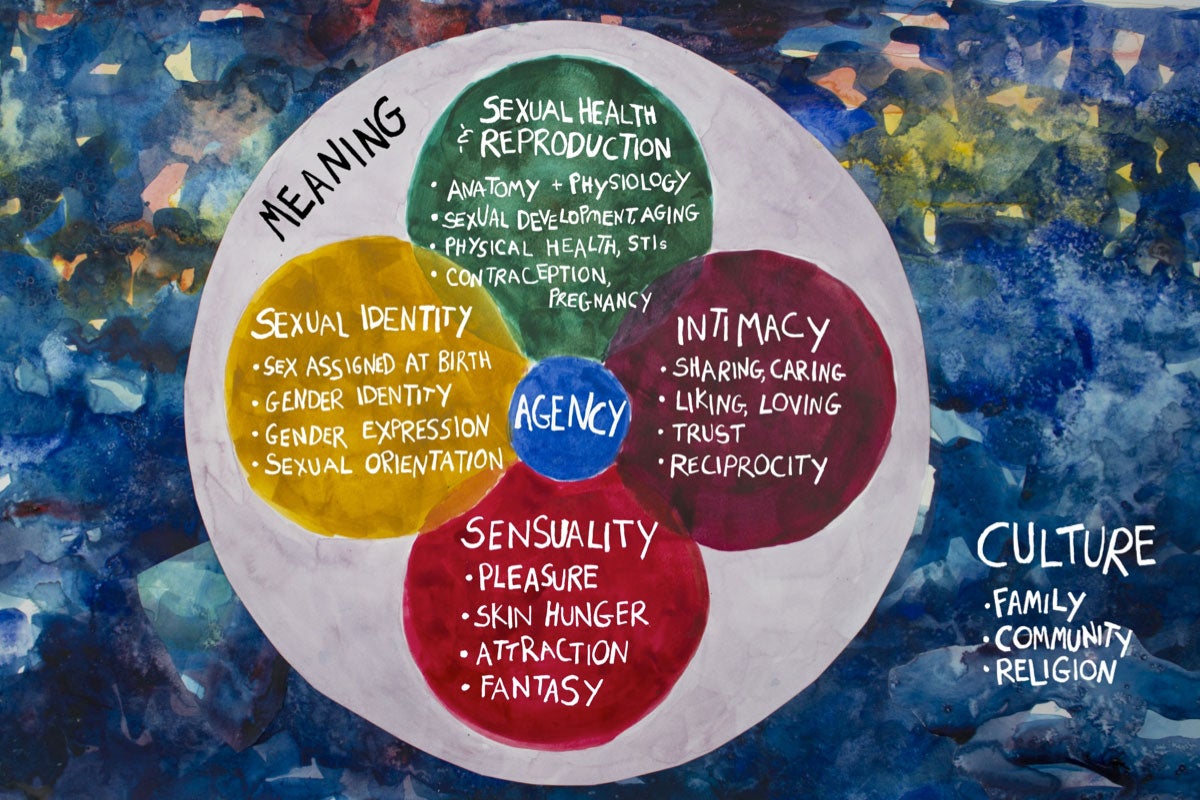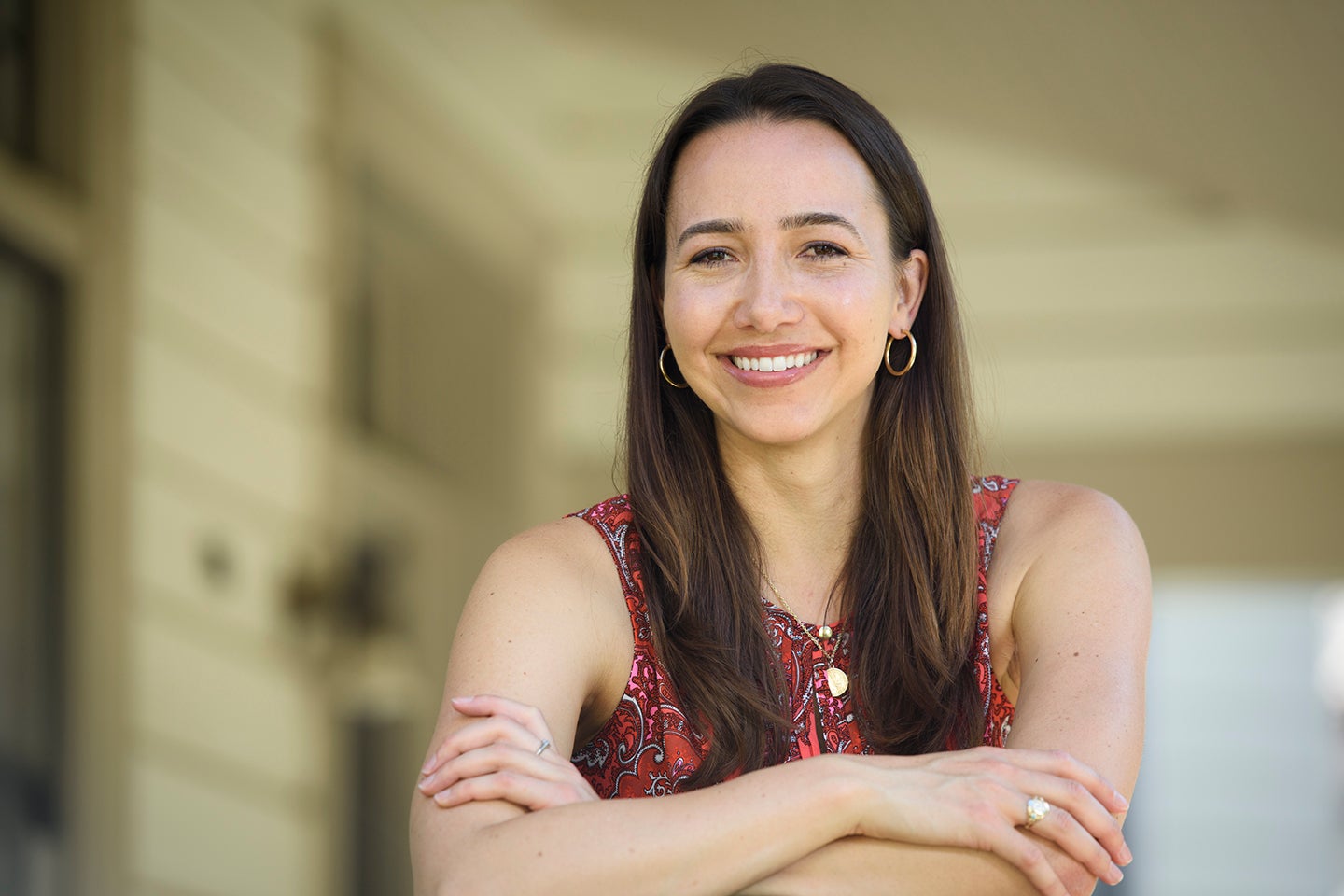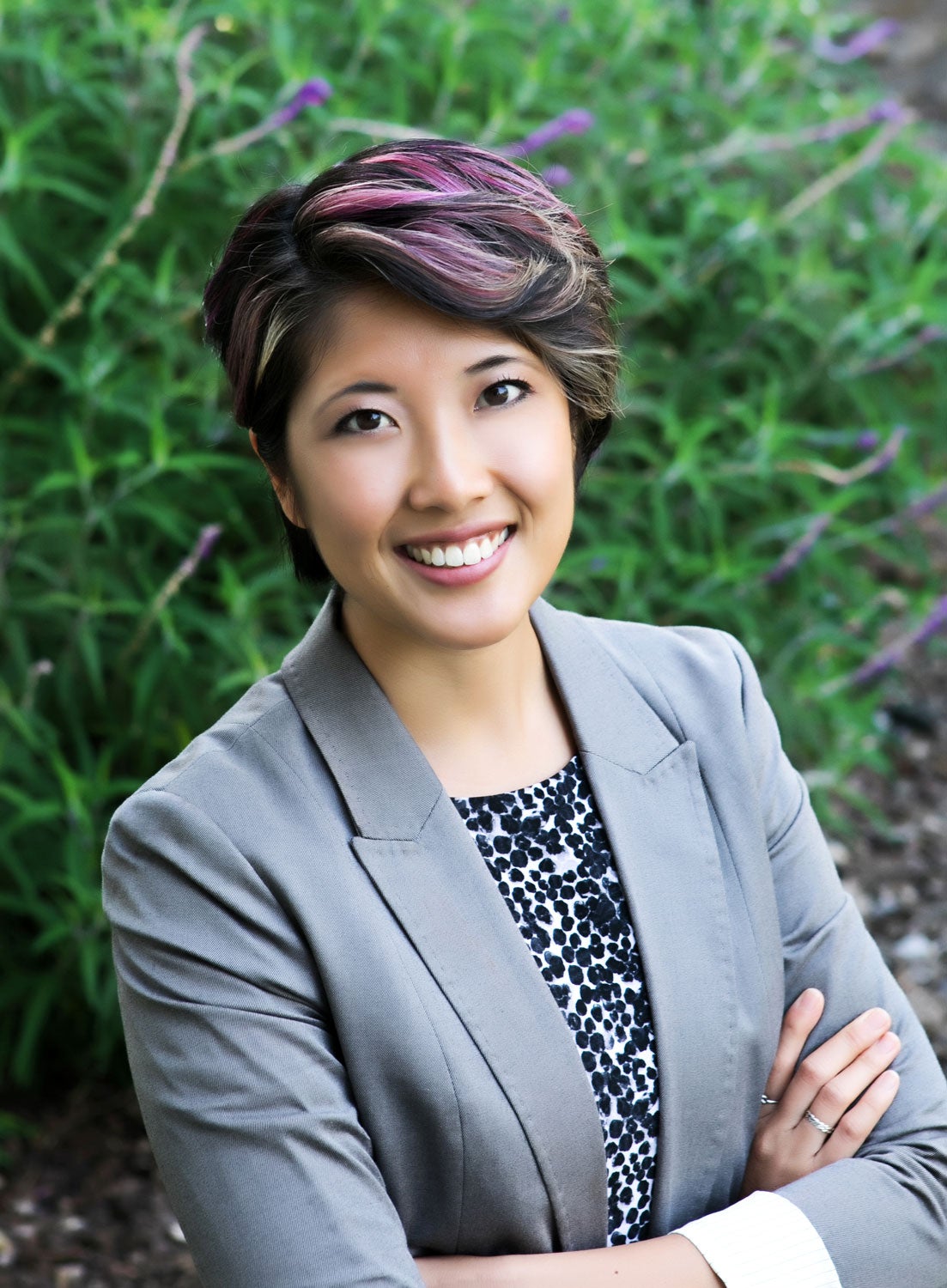It was as a junior last fall, attending a New Student Orientation session as a resident assistant, that Eisa Al-Shamma realized the power of storytelling in fostering healthier relationships.

A slide from the Beyond Sex Ed program showing “Dimensions of Sexuality.” Model adapted by Brianna Booth from Dennis Dailey. (Image credit: Eva Jordan)
The session, called Beyond Sex Ed, featured Stanford students sharing personal stories with the university’s newest undergraduates. The stories focused on dating, coming out, early sexual experiences and relationships – good and bad.
“The idea of the program is to change the culture around sexuality, emphasizing the importance of mutual respect and listening to oneself and others,” Al-Shamma said. “There’s a peer-to-peer connection, and student voices are uplifted. Cultural change needs to happen on the level of students themselves.”
Al-Shamma was inspired to take a storytelling class whose members went on to tell their own stories at this fall’s New Student Orientation. Now a senior, Al-Shamma is preparing to be a teaching assistant in the next storytelling class and is helping develop a new educational program for sophomores this spring focusing on relationships.
The expanding Beyond Sex Ed program is one of several efforts at Stanford to continue evolving educational programming around healthy relationships, community building and sexual violence prevention.
“Creating the culture we want is something that involves every member of the community, and students are playing a critical role,” said Lauren Schoenthaler, senior associate vice provost for institutional equity and access.
Efforts under way
A number of efforts are collaborative in nature but coordinated through the Office of Sexual Assault & Relationship Abuse Education & Response (SARA). Among the efforts underway this academic year:
- Beyond Sex Ed, first begun a year ago, is expanding. In addition to a mandatory session for all first-year undergraduates in September, several hundred juniors and seniors attended an additional session for upper-class students. A successor Beyond Sex Ed program, focusing on relationships and intimacy, is now being developed for sophomores to attend this spring. Ultimately, the goal is for each class of undergraduates to have an educational experience promoting healthy sexuality and relationships that builds on the prior year’s programming.
- The Stanford Anti-Violence Educators (SAVE) peer-education program will occur this winter for all first-year undergraduates. The dorm-based program, developed in partnership with the Associated Students and first piloted last year, has been moved from fall to winter to provide educational touchpoints for students at different times. Trained peer educators facilitate the workshops, focusing on communication in sexual and intimate interactions and tools for navigating all kinds of relationships.
- The Upstander Intervention Education Initiative, organized by the SARA Office in collaboration with the Office of Alcohol Policy and Education, is working to build skills to help students intervene in challenging situations. The training covers both interventions in “daily acts of harm,” such as those involving street harassment, bullying or sexist joke-telling, and “periodic high-risk situations,” such as those leading to sexual or relationship violence, according to Grace Poon, coordinator of prevention education and training in the SARA Office. The program provides a holistic and intersectional lens to intervention and offers a two-hour training to groups of students who request it.
- A new program to help students resist acquaintance sexual assault is being developed for use this spring with a pilot group of first-year undergraduates. The Enhanced Assess, Acknowledge, Act (EAAA) program, developed at the University of Windsor in Canada, has been shown in a clinical trial to significantly reduce the incidence of sexual assault among participants. The SARA Office, Stanford Prevention Research Center, Global Child Health Program and Department of Psychiatry and Behavioral Sciences are collaborating on the implementation and evaluation of the program at Stanford.
- New support websites have been developed to provide clearer, more user-friendly online resources to students. The website sexualviolencesupport.stanford.edu was launched at the beginning of fall quarter as a central resource on sexual violence, replacing the previous Not Alone website. A similar site providing resources related to relationship violence and domestic abuse will be available soon.
- Stanford Athletics this fall sponsored a Sexual and Relationship Violence Awareness Day at the Stanford football team’s home game against Arizona State. More than 3,200 “Set the Expectation” T-shirts were handed out to fans, and more than 2,800 people signed a pledge related to stopping sexual and relationship violence. Coach David Shaw is a member of the NCAA’s Commission to Combat Sexual Violence, which was formed last year.
Stanford’s student support services relating to sexual and relationship violence also have been consolidated in a new location, the refurbished Kingscote Gardens near Tresidder Union. Programs based there now include Institutional Equity and Access, the Confidential Support Team, the SARA Office, the Title IX Office and the Sexual Harassment Policy Office.
A broader understanding
The centerpiece educational effort for incoming undergraduates, Beyond Sex Ed, follows online training that students complete in the summer before arriving at Stanford.

Brianna Booth, director of positive sexuality, design and development in the SARA office, leads the Beyond Sex Ed program, which is designed to engage students in thoughtful discussions and to practice communication skills related to boundaries, consent, sexuality and relationships. (Image credit: L.A. Cicero)
Started as a student initiative and developed in coordination with the SARA Office, Beyond Sex Ed seeks to develop a broader understanding among students about the multiple dimensions of sexuality, intimacy, relationships and consent. The 90-minute program is led by Brianna Booth, director of positive sexuality, design and development in the SARA Office, who includes a mindfulness exercise and discussions with seatmates during the program to encourage a reflective approach and the opportunity to practice the skill of listening to themselves and one another.
During the program, 13 Stanford students share personal stories, which are the culmination of their work in StoryCraft: On Sexuality, a 2-unit course created by instructor Michelle Darby and Booth. The course examines social discourses that shape our understanding of sexuality while exploring and developing personal stories.
“We have assumptions about what is normal for other people, and we operate based on those assumptions without actually knowing what’s going on for other people or really listening to ourselves,” Booth said. “When you see a person stand on stage and tell their story in an authentic and vulnerable way, perceived norms and stereotypes give way to our real lives in all its textures, and the possibility for connection comes into view.”

Grace Poon is coordinator of prevention education and training in the SARA Office. (Image credit: Sylvia Fife / Great Fx Photography)
Dorm discussions follow the 90-minute program. A big focus, Booth said, is on recognizing sexuality as more than sex or sexual orientation, and rather as a multifaceted dimension of humanity through which we can learn about ourselves and one another.
Additionally, the program emphasizes that sexuality is not just a reflex or a script to follow; navigating the interpersonal dynamics of sexuality involves skill and thoughtful choices. This framework informs an understanding of affirmative consent, which is required by both state law and Stanford policy for sexual contact between students.
“Agency is our power to make choices,” Booth said. “We can use our sexuality for pleasure, to connect, to play, to explore, to express ourselves, to feel vitality, to bond, to love. Or, we can use it to bully, to shame, to gain status, to numb, to disrespect, to manipulate, control or violate someone’s boundaries.
“We talk about how you are entitled to your own sexuality, but not to anyone else’s. The incredible thing is that consent is what allows us to share. Consent is the key to the space between us.”
The Confidential Support Team offers confidential support to Stanford students impacted by sexual and/or relationship violence. Ongoing programming for self-identified survivors also is available, including through the Yoga as Healing and Healing Art Workshops programs.